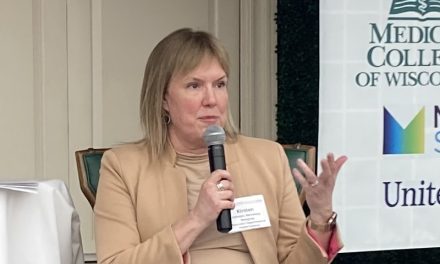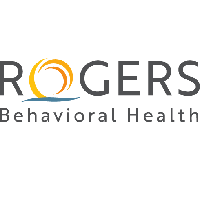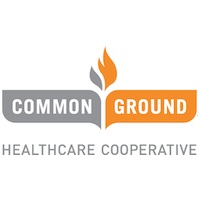
Wisconsin doctors, pharmacists warn against stockpiling potential COVID-19 treatments

Wisconsin doctors and pharmacists said Friday that physicians and others shouldn’t be preemptively prescribing or acquiring “extensive supplies” of drugs identified as potential treatments for COVID-19.
The Wisconsin Medical Society and Pharmacy Society of Wisconsin said in a joint statement that doctors and pharmacists should work with the healthcare team to ensure patients have access to necessary prescriptions and drugs, like chloroquine, hydroxychloroquine and azithromycin.
“Stockpiling medications deprive patients not suffering from COVID-19 of their medically indicated and required treatments and threaten their lives and well-being,” the statement noted.
Chloroquine and hydroxychloroquine are both used to treat malaria and auto-immune disorders like lupus or rheumatoid arthritis. Azithromycin is an antibiotic.
The two organizations said that they support multiple clinical trials that are in development to determine treatments for COVID-19.
Pharmacy Examining Board Chair Philip Trapskin wrote in an email that they’ve been hearing reports that many patients with chronic conditions are unable to get refills for drugs, including hydroxychloroquine.
“The surge of demand for certain drugs has strained the supply chain, so we are working hard to find the drugs our patients need,” he said.
He noted that some pharmacies have started to compound drugs like chloroquine as well as other products in high demand like hand sanitizer and products used to make sure respirators fit staff appropriately.
Other state pharmacy boards have taken action
by putting in place diagnosis requirements for and quantity limits on chloroquine or hydroxychloroquine. Danielle Womack, vice president of public affairs at the Pharmacy Society of Wisconsin, said that the state’s examining board doesn’t have the authority to pursue what other states have done.
Womack said they’ve seen different guidance from other state boards, including some that have been contradictory and created confusion for prescribers, dispensers and patients. They’re working on guidelines with the Wisconsin Medical Society on prescribing guidelines.
“We’ve heard from members that it’s happening,” Womack said. “They are experiencing it as other pharmacists in other states are experiencing it. And everybody’s looking at what can be done to ensure patients that are on this medication can continue to have access.”
Last Friday, Dr. Ryan Westergaard, chief medical officer of the Department of Health Services’ Bureau of Communicable Diseases, said there are anecdotal reports and preliminary evidence that chloroquine might help patients with COVID-19.
“It’s not the quality of data in a randomized trial that answers the question definitively,” he said. “There’s hope and there’s some reason to think that it may be helpful.”
He said there’s a concern that providers shouldn’t overuse or use it without strong evidence since they don’t want to see shortages for patients with diseases like lupus. He said they haven’t heard of a shortage in Wisconsin.
“It’s a national and international concern because everyone is appropriately looking for anything that can help people who are gravely ill, but we’ll keep our eyes closely on the issue and provide guidance if needed,” he said.
The Pharmacy Examining Board has granted a series of “variances” in response to COVID-19. They include allowing
pharmacists to re-use personal protective equipment, letting those licensed in other states to practice in Wisconsin and allowing
pharmacists to dispense prescriptions and devices in locations that are not pharmacies.
“What we’re trying to do is anticipate a surge and what will need to be done to make sure that pharmacies and hospitals and clinics are able to continue to be staffed with medication experts,” Womack said.
Some of the society’s other requests to the board also focus on anticipating how practice models might evolve in response to COVID-19, like having mobile clinics.
Trapskin said the board is considering other actions, like extending deadlines for continuing education requirements, making it easier for retirees to reactive licenses, clarifying curbside pick-up as a way to dispense medications and allowing more flexibility with consultation requirements on refills and new prescriptions.
Wisconsin Health News is removing the password on all stories related to the coronavirus. For the latest developments follow us on Twitter at @wihealthnews or check out our website. For complete healthcare coverage, sign up for a free trial to our daily email newsletter.









.jpg?bwg=1612548324)





















